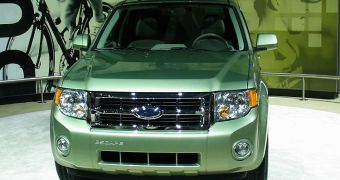Electric cars are an environmentally friendly alternative to old internal combustion engines that use fossil fuels and pollute the atmosphere. For now, they have their limitations regarding the autonomy, because electricity is very hard to store in conventional batteries and because recharge stations are still rare.
Now, a new generation of experimental vehicles designed by Ford and utility company Southern California Edison, wants to solve the latter problem by offering plug-in technologies for hybrid cars.
The most efficient cars are hybrids, using both electrical and internal combustion engines that recharge the electric batteries in motion. This will allow the battery to be recharged via a standard electric power outlet.
Ford officials stated these new models could enter production within the next decade, but they did not give additional specifications of an exact date, saying that it all depends on improvements on battery technology.
"Within 5 to 10 years we will start to see this technology in our hands," Ford CEO Alan Mulally explained. "I can't go further than that. We will know a lot more in the next few years."
This is the first time Ford, the second biggest auto maker in the US, actually presented a timeline for plug-in hybrid cars. Environmentalists support the idea, saying that these hybrid applications are both eco-friendly and feasible, the best available technology for pollution reduction.
Twenty of these experimental vehicles will be tested in the next years and at least one of the future models is known, the Ford Escape Hybrid sport utility vehicle, which will be re-engineered to incorporate plug-in technology.
"Consumers have been waiting a long time for an auto maker to offer the next generation of ultra-fuel-efficient, gasoline-optional cars," said environmental groups Rainforest Action Network and Global Exchange Campaign, as a response to the Ford statement.

 14 DAY TRIAL //
14 DAY TRIAL //